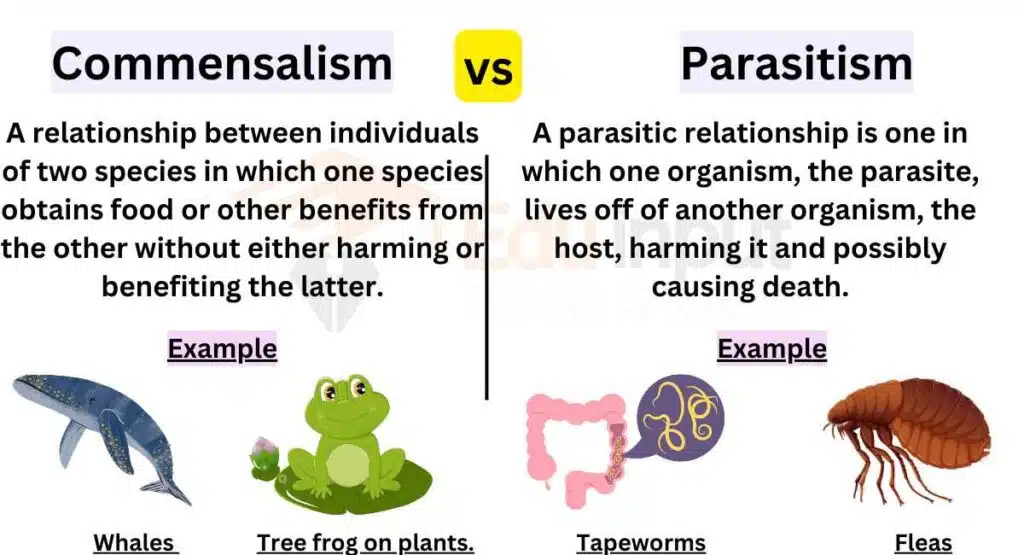Difference Between Commensalism and Parasitism
The main difference between commensalism and parasitism is the difference of outcome. In commensalism, one organism benefits while the other is unaffected, while in parasitism, one organism benefits at the expense of the other, which is harmed or suffers.

Commensalism and parasitism are contrasting symbiotic relationships. Commensalism involves one organism benefiting without harming the other, while parasitism involves one organism benefiting at the expense of the other.
Commensalism vs. Parasitism
Here are the key differences between Commensalism and parasitism:
| Aspect | Commensalism | Parasitism |
|---|---|---|
| Outcome | One organism benefits, the other is unaffected | One organism benefits, while the other is harmed or suffers |
| Interaction | One-sided interaction, where the commensal organism benefits | Parasite relies on the host for survival |
| Effect on Host | Host organism remains unaffected | Host organism experiences harm, disease, or damage |
| Relationship | One organism benefits, the other is neither benefited nor harmed | One organism benefits at the expense of the other |
| Dependency | Commensal organism does not rely on the host for survival | Parasite depends on the host for resources, shelter, or nutrients |
| Duration | Commensal relationship can be temporary or long-term | Parasitic relationship is usually long-term or permanent |
| Host Specificity | Commensal organism may be found on multiple host species | Parasite is typically specific to one or a few host species |
| Interaction Outcome | Commensalism does not usually cause significant harm to the host | Parasitism often leads to detrimental effects on the host’s health |
| Evolutionary Relationship | Commensalism may not involve coevolution between species | Parasitism often involves coevolution, where parasites adapt to their hosts |
Read
Differences Between Mutualism And Commensalism And Parasitism



Leave a Reply